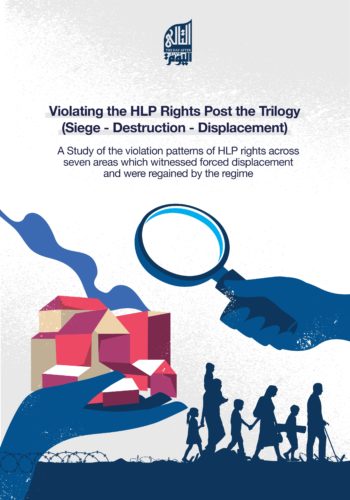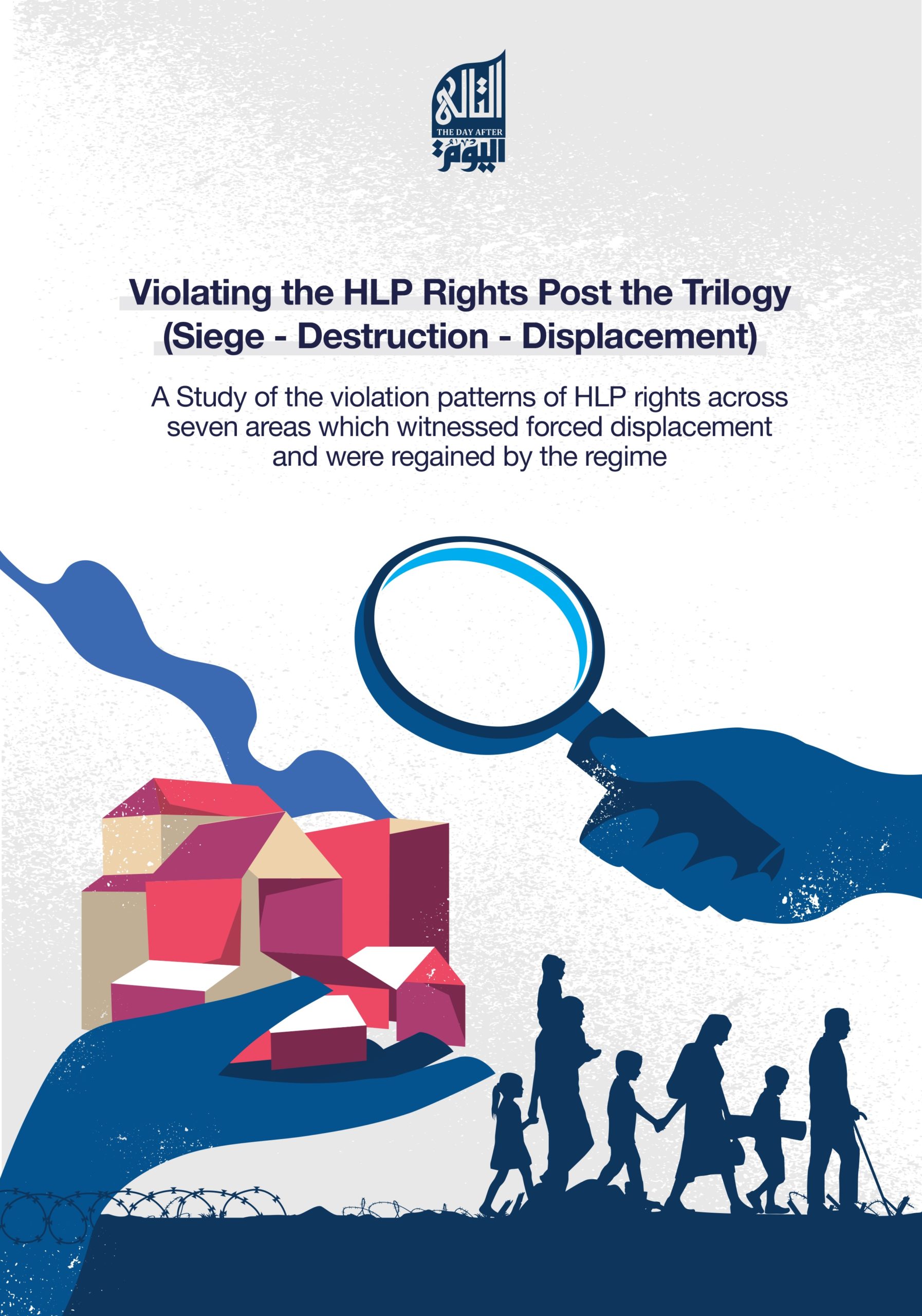Violating the HLP Rights Post the Trilogy (Siege – Destruction – Displacement)
A Study of the violation patterns of HLP rights across seven areas which were regained by the regime
 Date: January 2024
Date: January 2024
This study investigates the practices affecting HLP rights in seven areas which the Syrian regime has regained control from the opposition following the Russian military intervention in 2015. Between the aforementioned year and 2018, the Syrian regime and its allies were able to regain dozens of areas of different Syrian governorates, especially in Damascus, Aleppo, Homs, and Daraa. Of these areas, we studied the cases of Jobar, Al-Tadamon, and Darayya in Damascus and its rural area, Al-Qusayr and Baba Amr in Homs, as well as the camp neighborhood in Daraa city, and Jabal Badro neighborhood in Aleppo. In each of these study areas, we briefly reviewed the experience of each area during the conflict and the most prominent events that occurred there. Secondly, we analysed the real estate structure of those areas, meaning the nature of the properties and their legal status, based on reviewing different templates of ownership and property documents.
The study focused on identifying, documenting, analysing, and categorizing all practices which affect the HLP rights in the seven areas. We examined all the practices revealed by the investigation in relation to the HLP rights as committed by the regime’s military or administrative agencies, or by its affiliated militias and informal formations. For each case, we attempted to estimate the extent of these practices, their perpetrators, and the associated results.
The objective of this effort is first to shed light on those irregular housing areas in Syria that have been covered by a thick curtain of secrecy since the regime forces regained control over them, which made it challenging to learn the reality occurring in each of them. The second objective is to understand the policy dimension of the regime’s practices towards those areas, meaning what is the regime really trying to do? As for the third objective, it is to push for a reconsideration of our concept of what violations of HLP rights are in the context of the Syrian conflict. We argue that these violations are not necessarily a list of clear violations stipulated in local or international laws, but rather a wide spectrum of practices that differ in their nature and direct actors, and which extend from deprivation of the right to housing due to the control of a local militia or the re-regulating the area by administrative institutions, to the demolishing of entire residential complexes by the army and security services. Our study aims to contribute to filling this theoretical gap and proposes a preliminary classification of these numerous practices within a smaller number of patterns of violations of HLP rights, hence assisting to better clarify the complex map of violations of HLP rights in the study areas.
